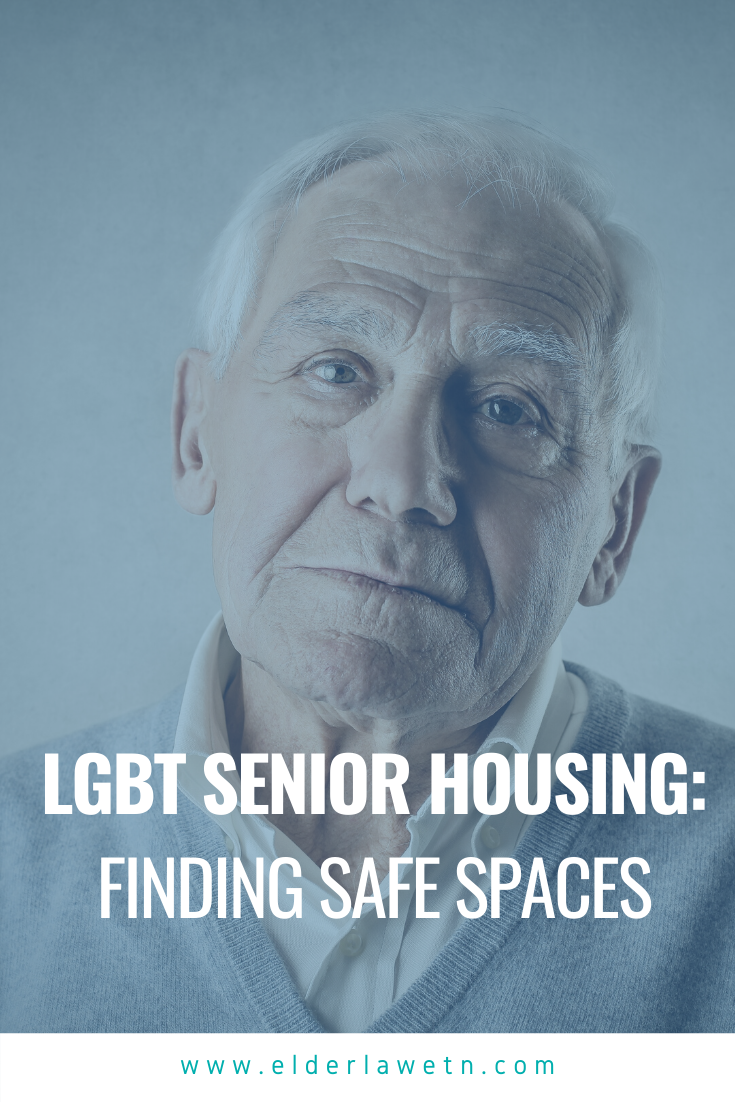Lately we have done a lot of talking about senior housing options, from the social benefits of facility living to some creative housing alternatives. That’s because housing is one of the primary concerns for aging adults and their loved ones. Many consider moving to a residential facility a last resort, and it can be a difficult transition for everyone involved. Learning how to share spaces with many other people and sacrifice some independence are just some of the challenges elders face.
For people in the LGBT community, transitioning to facility living can be particularly unpalatable. In the May 2016 article “How Gay-Rights Pioneers Are Finding the Family They Never Had,” OZY Magazine describes the additional challenges for those of alternate gender or sexual identities: higher rates of isolation, greater risk of discrimination by facility staff and fellow residents, and fears of having to go “back in the closet” after lifelong struggles to be open about their identities and build supportive social networks.
Some activists and entrepreneurs have begun creating residential facilities and communities which particularly cater to the needs of this at-risk community. While these LGBT-friendly communities help to meet an existing need, they are not available in all areas, and they come with their own sets of challenges. In some places, waiting lists are long; in others, there are not enough applicants to fill the space. Additionally, Fair Housing laws prevent facilities receiving government funding (such as Medicaid payments) from marketing themselves as “LGBT-only,” and purely private-pay facilities are too expensive for many families. The housing concerns of LGBT seniors may present opportunities for entrepreneurs to develop innovative types of housing solutions, but for now many LGBT elders will have to find a way to navigate within the current array of housing options.
A care coordinated approach is one way to help LGBT elders find housing solutions that meet their unique needs. It is a care coordinator’s job to explore all possible housing options, to facilitate conversations with facility staff, and to advocate for the elder to ensure all of his or her needs are met. As we discussed in a previous blog, there may be innovative housing options available in the local community which would appeal to LGBT elders. A care coordinator can assume the burden of legwork, negotiations, and advocacy, relieving the older adult and his or her family of that stressor and finding a solution that will allow the elder to live with comfort and dignity. The Life Care Planning Law Firms Association and the Aging Life Care Association provide information about professionals and organizations which offer care coordination services.
It is to be hoped that cultural shifts toward greater openness and acceptance will make this virtually a non-issue over time. But in the meantime, professionals who serve seniors need to think about how to best address the concerns of their LGBT clients and ensure that they receive care in a place where they feel safe and can be themselves. SAGE (Services and Advocacy for Gay, Lesbian, Bisexual and Transgender Elders) has started the National LGBT Elder Housing Initiative to address this challenge from several directions: building housing, training providers, influencing policy, expanding LGBT services, and educating consumers. They provide a wealth of educational resources, including cultural competency training webinars for senior service providers, to help facility staff and others who serve the elder population create welcoming environments for LGBT clients.

As our culture moves toward greater openness – and higher expectations by LGBT individuals to be able to express their identities openly – we at Elder Law of East Tennessee are aware that some of our clients might approach us with these concerns in the future. To prepare ourselves to best serve this population, we are initiating conversations among ourselves and in the elder care community about how to address the housing concerns of LGBT individuals. Our care coordinators are always on the lookout for new housing options and spend tremendous time in the community building relationships with facility staff – relationships which they use to ensure the best case for their clients. We strongly encourage other senior service providers to explore this issue and lay the groundwork for addressing it. We believe that having open conversations – within the community of service providers, with clients and families who have concerns about how they will be treated as facility residents, and with operators and staff of those facilities – will go a long way toward easing fears and facilitating LGBT elders’ placements in environments where they can enjoy the highest possible quality of life.

